
We may earn revenue from the products available on this page and participate in affiliate programs. Learn more ›
The iPad Pro has historically been a playground for Apple to try out some of its newest and most interesting tech and features. Today, the company revealed the iPad Pro’s latest generation with a totally new M4 chip inside and an OLED display on the front. The step-down iPad Air also got a refresh, which includes a new size option, improved Apple Pencil compatibility, and more. You can dig into the specs on Apple’s site, but here are some key takeaways from the new product announcements:
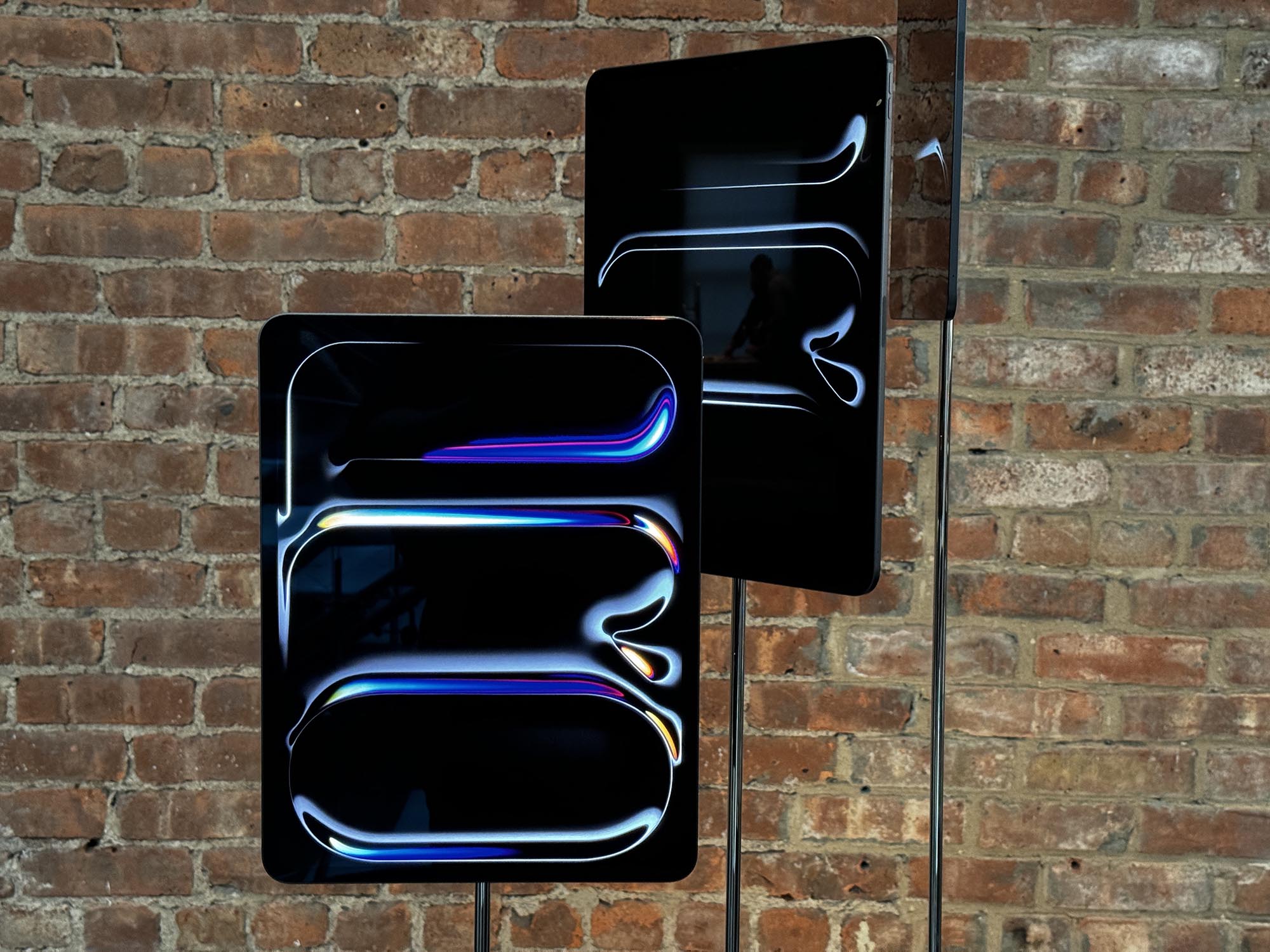
Apple’s M4 chip debuts in the new iPad Pro
The original M-series silicon debuted way back in 2020, and now Apple has introduced the fourth-generation M4 chip in the iPad Pro (shown above) before it makes its way into a full-on Mac. It’s a big jump from the M2 chip found in the previous tablet. Apple claims a 1.5x improvement in CPU performance over the already beastly M2 iPad Pro.
The M4 really flexes when it comes to AI. It’s capable of 38 trillion calculations per second, up from 15.8 trillion in the M2 iPad Pro. Numbers like that are so enormous that they’re hard to visualize, but Apple claims they directly translate into drastically improved performance during AI-intensive tasks. Rendering 3D objects happens four times faster. Apps like Procreate can generate visual effects without long stints of staring at a progress bar.
In short, the new iPad Pro should be silly fast.
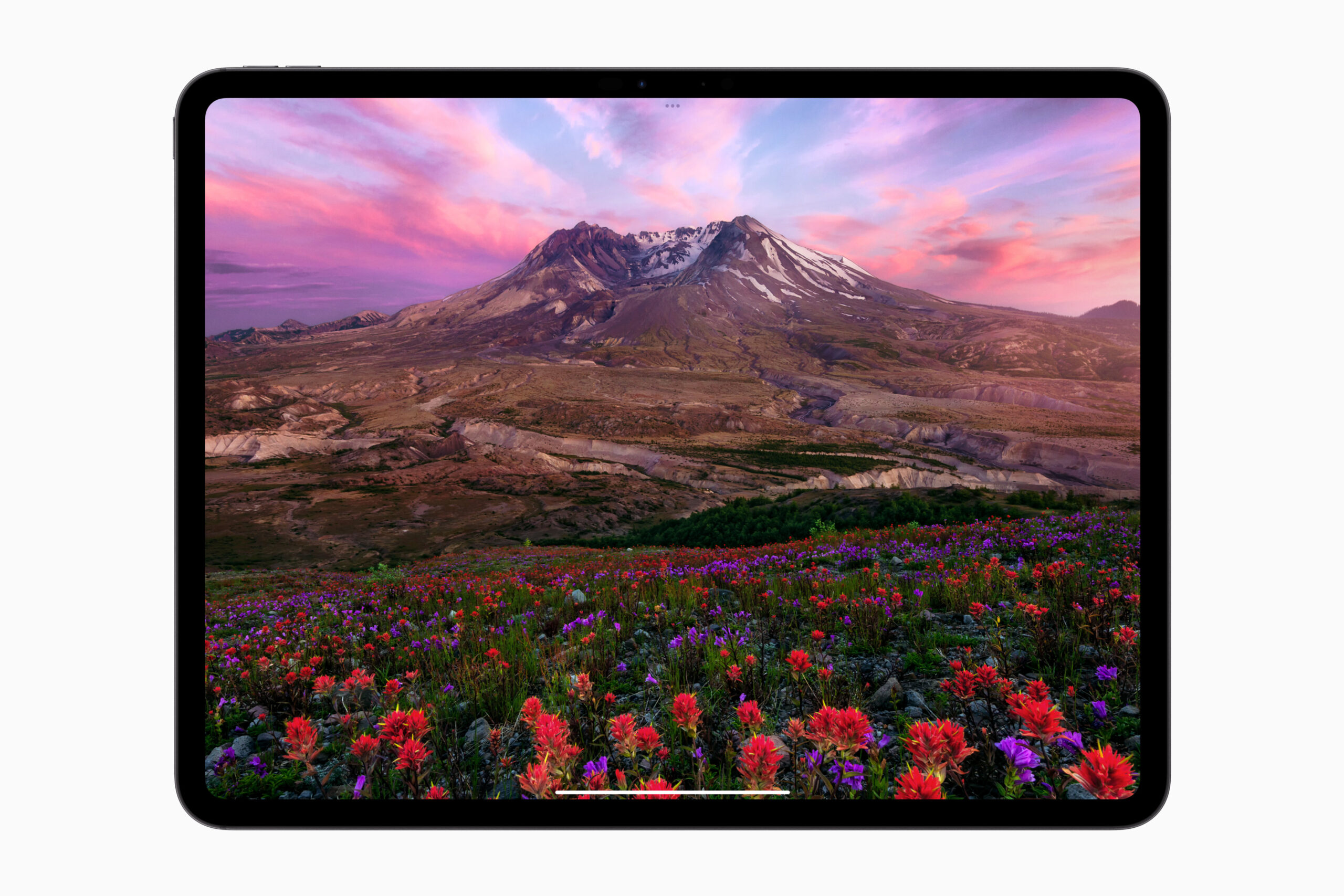
iPad Pro has a fancy new OLED display—the Ultra Retina XDR
While the M4 chip is big news under the hood, the hood itself is pretty fancy. The new OLED display relies on a unique stacked dual-panel setup to provide the kind of brightness and color accuracy the company desired. As with OLED TVs, this type of display offers unprecedented levels of contrast but often suffers when it comes to overall light output. However, The new Pro models offer 1,000 nits of full-screen brightness or 1,600 nits with HDR, so they match their Mini-LED predecessor’s output while increasing the contrast ratio to 2,000,000.
For an extra $100, Apple will apply a nano-texture to the display surface to combat glare. This tech was already available on the Studio Display, but this is its first iPad appearance. It could be a worthy upgrade if you typically work in environments with lots of ambient light, like planes or trains.
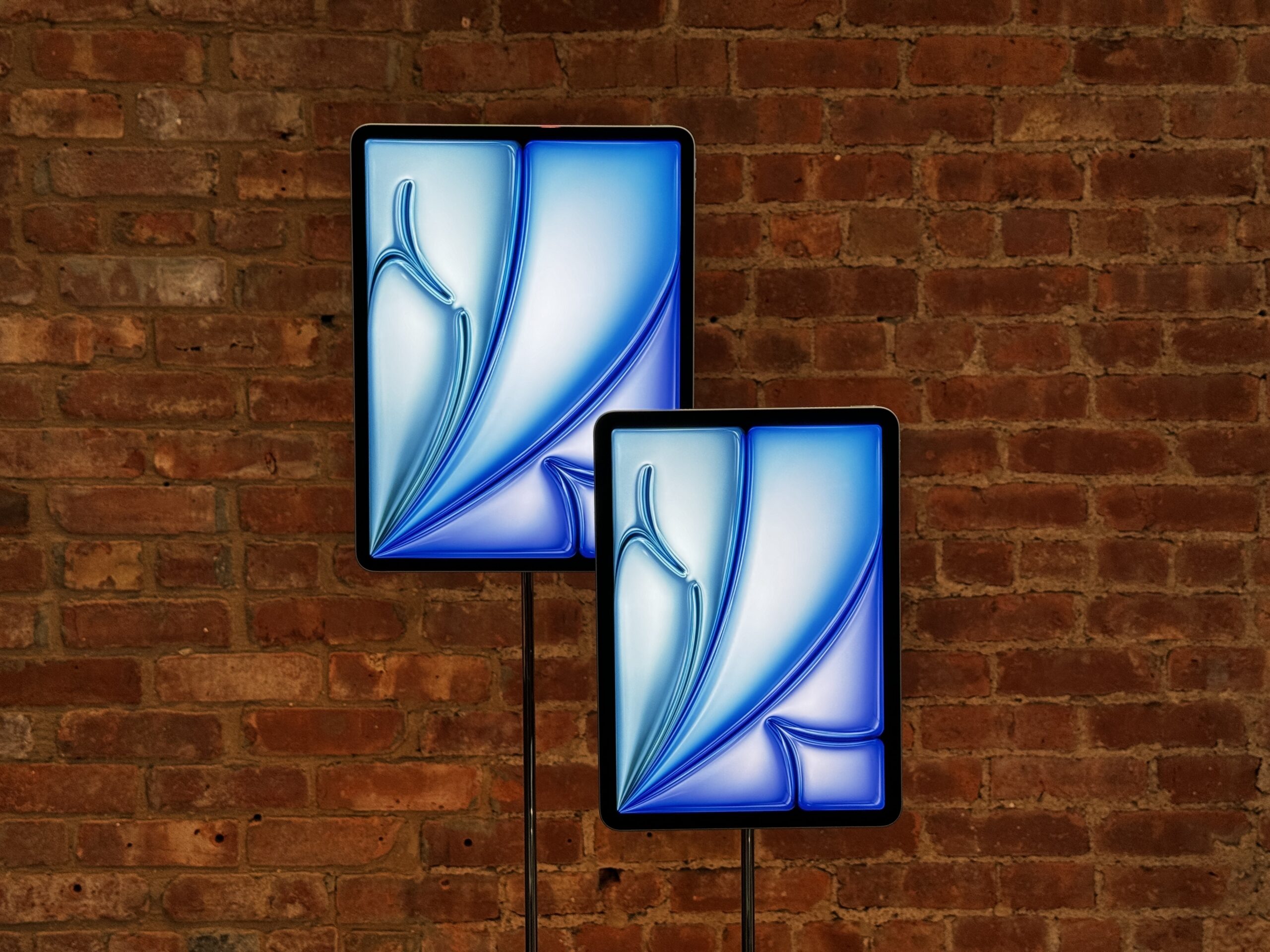
iPad Air now offers an M2 chip and a 13-inch screen option
While the iPad Pro is the star of the lineup, the Air is a more practical option for most people. The new Air (shown above) comes with the M2 chip inside, which matches the computing power of the previous-gen. Pro. You can now choose a familiar 11-inch model (which starts at $599) or the new 13-inch model (which starts at $799). Both come in four colors and start with 128GB storage in the base model. The updated Air models also work with the new Apple Pencil Pro.
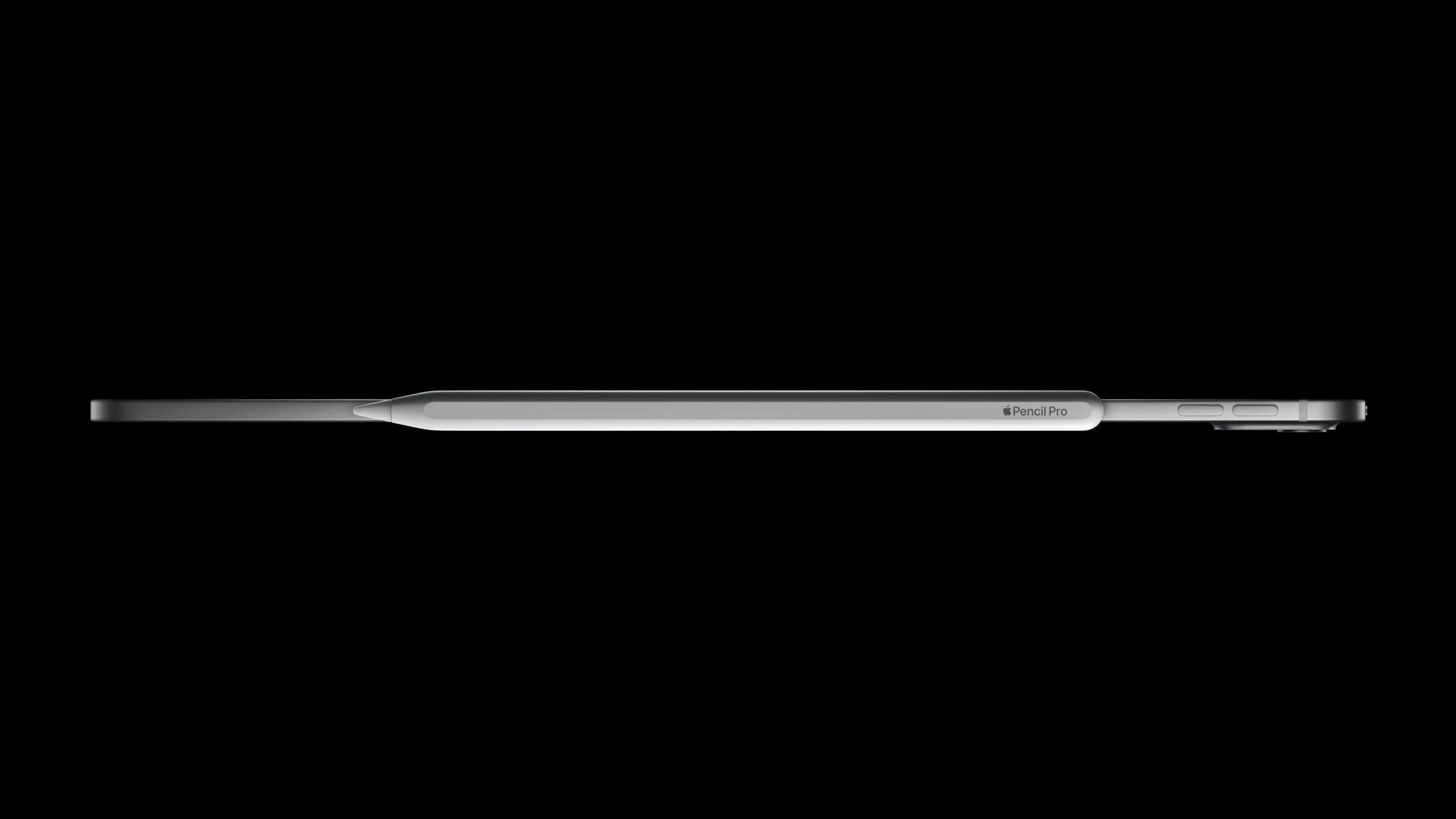
Apple Pencil Pro offers new squeeze and rotation features
An Apple Pencil is fairly essential for getting the most out of any iPad, and there’s now a top-end model with features exclusive to the latest generation of Pro and Air. The $129 Apple Pencil Pro still attaches magnetically to the side of the iPads for storage and charging. In addition to typical Pencil features, the Pencil Pro offers a squeeze control. Squeezing the barrel of the Pencil brings up brush menus and other functions without the need to actually touch the screen.
The other big upgrade comes in the form of a built-in gyroscope. That extra sensor allows the Pencil to detect its own orientation as you roll it over in your hand. So, if you choose a chisel-shaped marker brush, you can actually rotate the Pencil to make the line thinner or thicker.
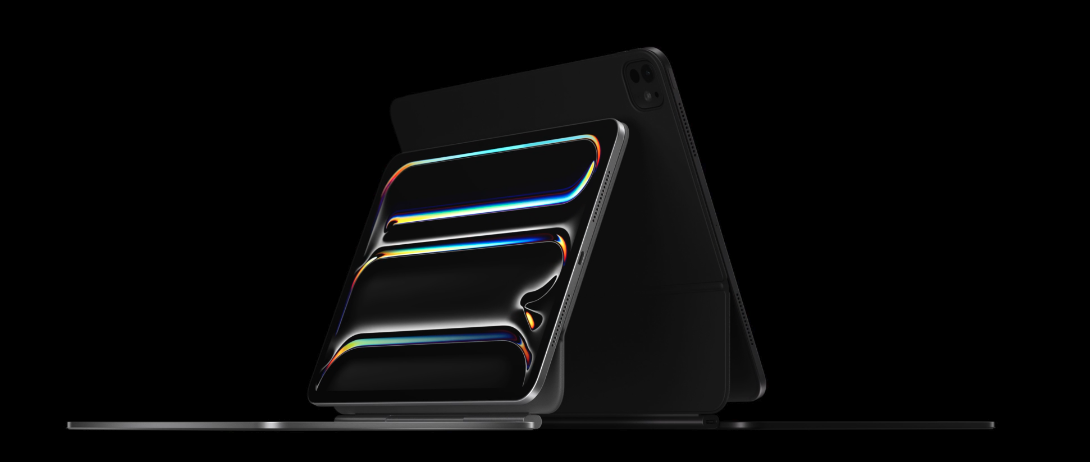
The iPad Pro has a new Magic Keyboard case
With all the power from the M4 chip inside, the new iPad Pro draws natural comparisons to full-on laptops. Of course, that requires a keyboard, and the new Pro arrives with an optional Magic Keyboard. The $349 case (pricy, but that’s not surprising) includes a full row of function keys and a large multi-touch touchpad, making the whole package look an awful lot like a typical MacBook.

An iPod Nano is thicker than the new iPad Pro
The grand vision for the iPad has always been to make it like a “magic pane of glass.” The new Pro 13-inch iPad Pro is just 5.1mm thick, which is thinner than the 6.2mm thick iPod Nano of days past. The 13-inch model weighs just 1.28 pounds, while the 11-inch sneaks in at 0.98 pounds. That makes the 13-inch model roughly a quarter pound lighter than its predecessor. That’s a noticeable difference in devices like this.
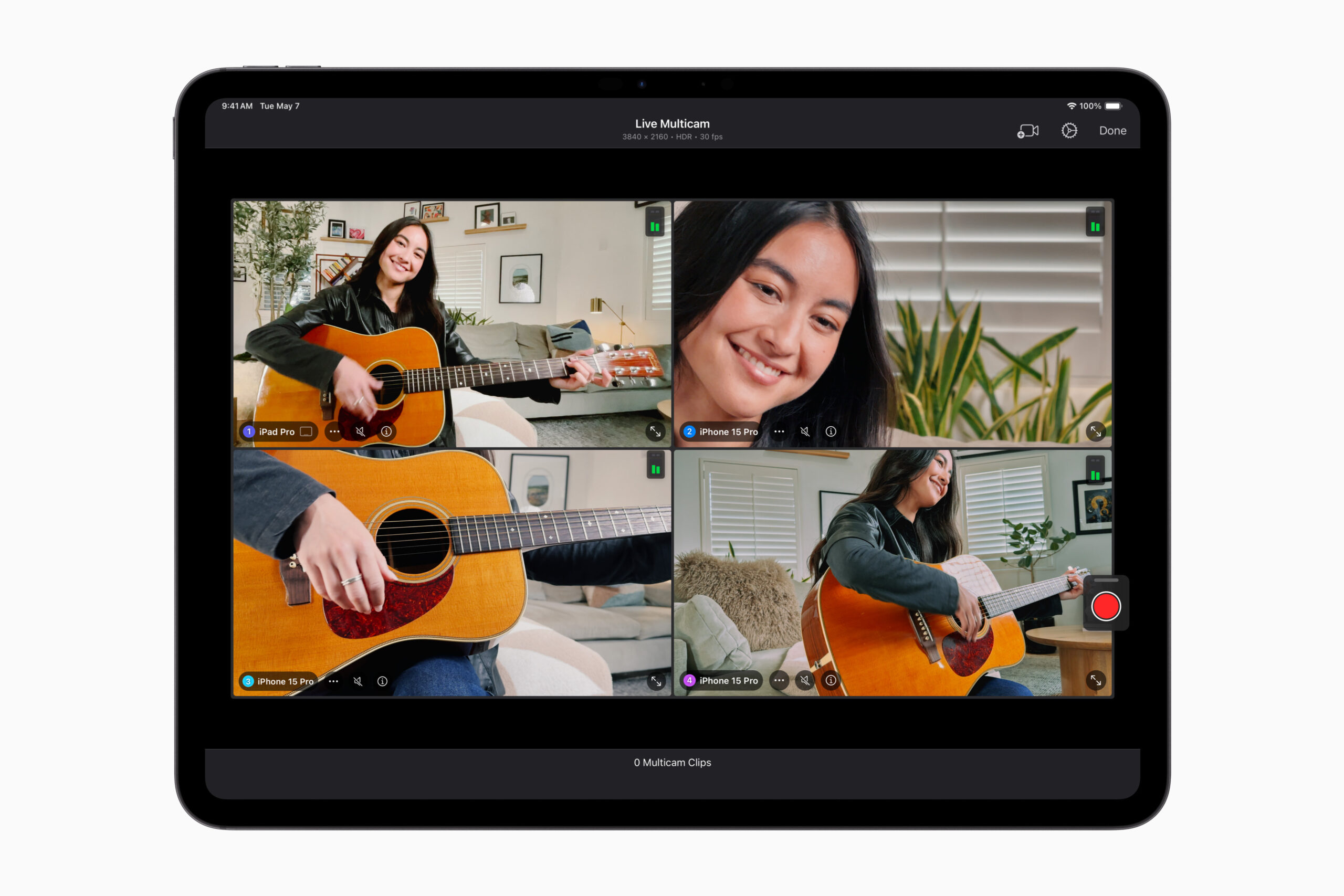
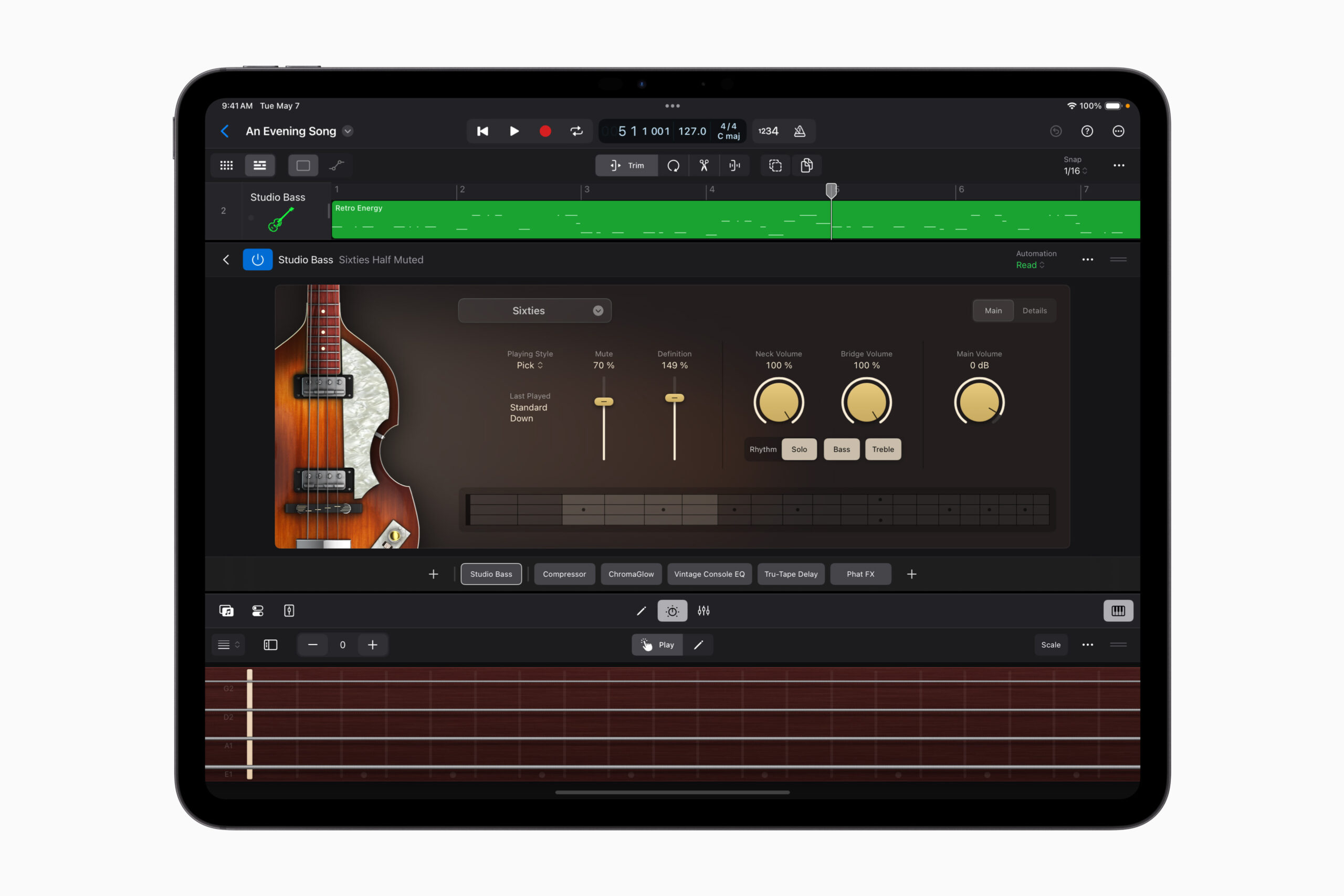
Final Cut Pro and Logic both got big upgrades for the new iPads
Apple wants pros working on these iPad Pros, so the company redesigned two of its high-end apps to take advantage of the new devices. Final Cut Pro for iPad 2 and Logic Pro for iPad 2 have both gotten considerable updates with touch-first capabilities in mind. Final Cut also now has its own dedicated camera app, allowing real-time multi-cam setups running across several iPhones. The new Logic music editing app adds even more AI-powered musicians to jam along with your compositions. We’re looking forward to trying out both new apps when they’re live.
The post 7 things you should know about the new M4 iPad Pro and M2 iPad Air appeared first on Popular Science.
Articles may contain affiliate links which enable us to share in the revenue of any purchases made.
from Popular Science https://ift.tt/JWrvmsk




0 Comments